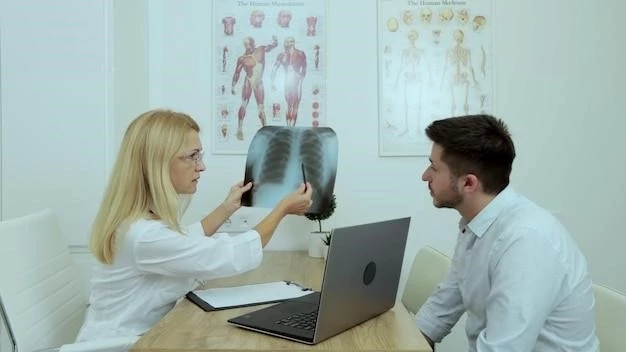Introduction to Mycosis Fungoides
Granulomatous cutaneous T-cell lymphoma includes mycosis fungoides with significant granulomatous inflammation (GMF) and granulomatous slack skin (GSS)‚ listed in the WHO classification as a subtype of mycosis fungoides (MFs). These overlapping entities have shared clinical and histopathologic features which can present a diagnostic challenge.
Definition and Classification
Mycosis Fungoides is a type of cutaneous T-cell lymphoma that primarily affects the skin. It is characterized by the malignant proliferation of CD4 T cells with epidermotropism in the skin‚ leading to various skin symptoms. Classified as a subtype of cutaneous T-cell lymphoma‚ Mycosis Fungoides accounts for almost 50% of all cases. It typically presents as patches‚ plaques‚ and tumors on the skin‚ with advanced cases potentially involving lymph nodes and other organs.
Clinical Features of Mycosis Fungoides
Mycosis Fungoides‚ a cutaneous T-cell lymphoma‚ primarily affects the skin with manifestations ranging from patches to tumors.
Skin Manifestations
Mycosis Fungoides primarily manifests on the skin‚ ranging from patches to tumors‚ which may evolve into more advanced forms as the disease progresses. These skin manifestations can present diagnostically challenging patterns that require careful evaluation and monitoring.
Advanced Disease Symptoms
In advanced stages‚ Mycosis Fungoides may present with aggressive clinical courses‚ large cell transformations‚ and poor survival rates despite standard treatments. Some distinct miRNA expression profiles have been identified in advanced forms‚ which may impact disease management and outcomes.
Diagnosis and Staging of Mycosis Fungoides
Diagnosing Mycosis Fungoides involves a meticulous evaluation of skin manifestations and may require advanced staging criteria for accurate classification and treatment planning.
Diagnostic Methods
Diagnosing Mycosis Fungoides typically involves a combination of clinical evaluation‚ skin biopsy‚ histopathological examination‚ immunohistochemistry‚ and molecular testing to confirm the presence of malignant T-cells in the skin. These diagnostic methods play a crucial role in accurately identifying and staging the disease.
Staging Criteria
Staging Mycosis Fungoides involves assessing skin involvement‚ lymph node status‚ and the presence of extracutaneous disease to determine the extent and progression of the condition accurately. Various staging criteria are utilized to categorize the disease and guide treatment decisions.
Causes and Risk Factors of Mycosis Fungoides
Information on specific causes and risk factors of Mycosis Fungoides is not available at this time.
Etiology of the Disease
The specific etiology of Mycosis Fungoides is not yet fully understood. Research focuses on genetic mutations‚ immune dysregulation‚ and environmental factors that may contribute to the development of this cutaneous T-cell lymphoma.
Associated Risk Factors
Currently‚ there is limited information available on the specific associated risk factors for Mycosis Fungoides.

Treatment Options for Mycosis Fungoides
Information on treatment options for Mycosis Fungoides is not available at this time.
Topical Therapies
Although topical treatments are commonly used‚ detailed information on specific topical therapies for Mycosis Fungoides is currently not available.
Phototherapy and Systemic Treatments
Specific details regarding phototherapy and systemic treatments for Mycosis Fungoides are not currently available in the provided information.
Prognosis and Survival Rates in Mycosis Fungoides
The survival rates and prognosis factors for Mycosis Fungoides are not defined in the available information.
Factors Affecting Prognosis
Factors that can affect the prognosis of Myositis Fungoides include the stage of the disease at diagnosis‚ the extent of skin involvement‚ the presence of extracutaneous manifestations‚ and the responsiveness to treatment regimens.
Survival Rates Across Disease Stages
Specific survival rates across different stages of Mycosis Fungoides are not explicitly provided in the available information.
Complications and Disease Progression in Mycosis Fungoides
The information regarding complications and disease progression in Mycosis Fungoides is not currently specified.
Potential Complications
Details regarding potential complications associated with Mycosis Fungoides are not specifically outlined in the available information sources.
Disease Progression Patterns
Specific information on disease progression patterns in Mycosis Fungoides is not explicitly provided in the currently available data.

Research Developments and Innovations in Mycosis Fungoides
Currently‚ there is limited specific information available on research developments and innovations in Mycosis Fungoides.
Emerging Therapies
Specific details on emerging therapies for Mycosis Fungoides are not provided in the current available information.
Recent Studies and Findings
Specific recent studies and findings related to Mycosis Fungoides are not explicitly presented in the currently available information sources.
The specific management strategies for side effects in Mycosis Fungoides treatment are not detailed in the available information.
Management of Side Effects in Mycosis Fungoides Treatment
Information on specific management strategies for side effects in Mycosis Fungoides treatment is not available at present.
Strategies for Managing Side Effects
Specific strategies for managing side effects in Mycosis Fungoides treatment are not explicitly outlined in the provided information.
Patient Education and Support in Mycosis Fungoides
For detailed patient education and support resources related to Mycosis Fungoides‚ please consult specialized healthcare professionals.
Importance of Patient Counseling
Information regarding the importance of patient counseling in Mycosis Fungoides is not specified in the current available data.
Support Groups and Resources
Specific information about support groups and resources for patients with Mycosis Fungoides is not provided in the current available data.
Preventive Measures and Lifestyle Recommendations for Mycosis Fungoides
There is no specific information available regarding preventive measures and lifestyle recommendations for Mycosis Fungoides in the current data.
Sun Protection and Skin Care
Specific information on sun protection and skin care measures for individuals with Mycosis Fungoides is not provided in the current available data.
Healthy Lifestyle Practices
Specific healthy lifestyle practices recommended for individuals with Mycosis Fungoides are not explicitly outlined in the available information.
Conclusion on Mycosis Fungoides
In conclusion‚ Mycosis Fungoides presents diagnostic and treatment challenges‚ with evolving research aimed at advancing our understanding of this cutaneous T-cell lymphoma. Patient care should involve a multidisciplinary approach tailored to each individual’s needs and disease characteristics.
